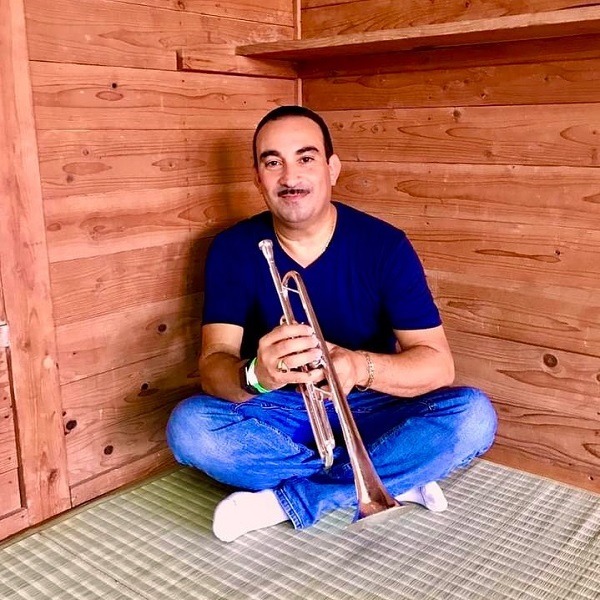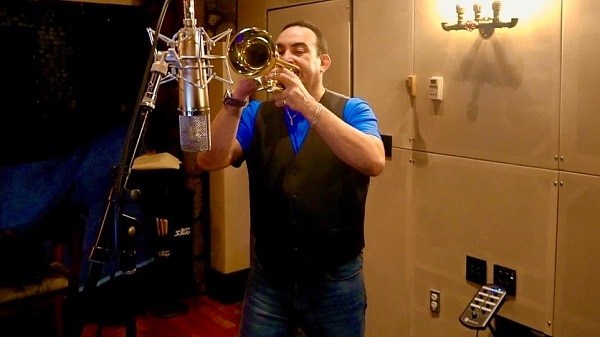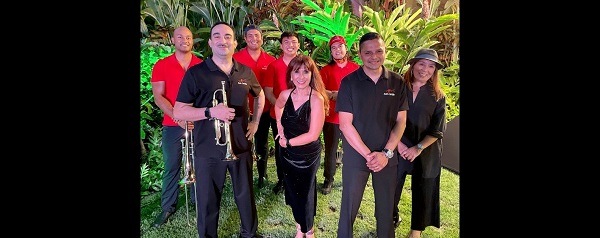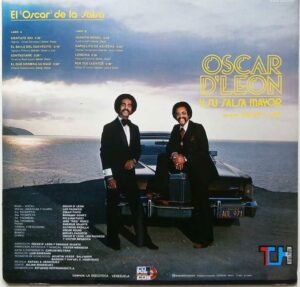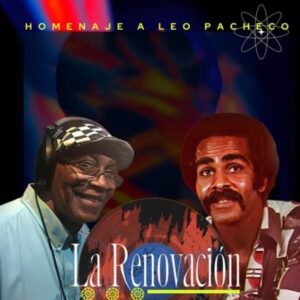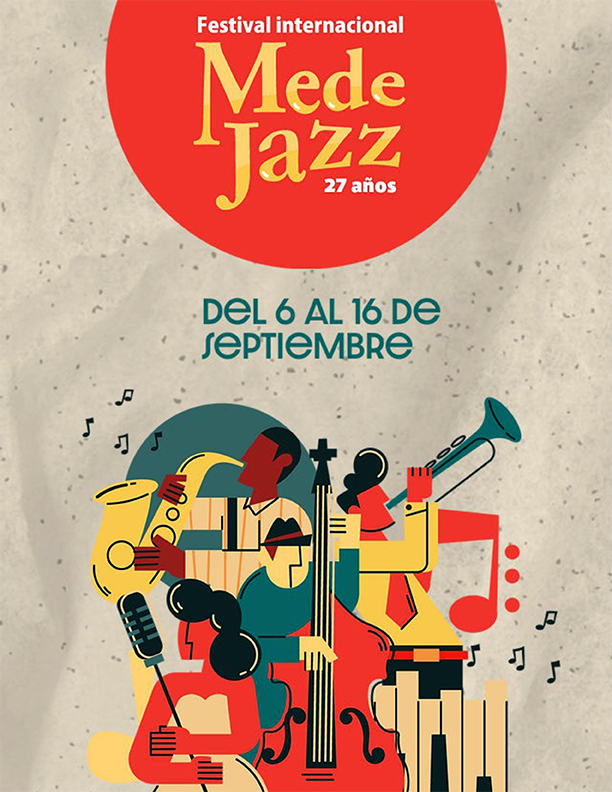Alex, Jairo, and Andrés in Canadá
Salseros With Attitude is a salsa band based in Toronto, Canada, whose Latin music scene is gaining strength as the years go by.
We got to work and contact these talented young people to learn about the band’s history and what their lives have been in the North American country with the profession they are in.
We spoke with Alex Naar, Jairo Acuña and Andrés Magno, who had a lot of highly valuable information to provide to this conversation about music and Latin culture in general. Here are the most relevant details of the interview with three of the main members of Salseros With Attitude.

How Alex and Jairo started in music
August 10, 2023 was the day chosen to meet with these musicians via Zoom and the first to speak was Alex Naar, saxophonist and vocalist of Salseros With Attitude, who greeted us and welcomed the opportunity to talk to International Salsa Magazine.
When asked about the group’s beginnings and how its members met, Jairo Acuña, the orchestra’s conguero and percussionist, indicated that, in his own personal case, his first steps in music were through the saxophone, an instrument that brought him closer to what would become his great passion decades later.
The musician said that he always liked rumba and salsa percussion, which led his parents to believe that a pair of conga drums would be a very fitting present for their young son, and well, they were right. In addition to the congas, there were other percussion instruments he learned to play in church, which served as stepping stones for Jairo to further advance his career.
Another great stepping stone in his musical growth was the Cuban teacher and musician Jorge Luis Torres ”Papiosco”, who was one of his great mentors and taught Jairo everything he knew, to the point that today he still has much respect for him and considers him an important reference to follow
As was the case with Jairo, Alex also learned a lot about music in church, but he turned to guitar playing. His big leap to professional music was a friend of his who invited him to join a merengue group, a genre he had never played before in his life. However, he accepted the challenge with the best of mind and began formally studying music to acquire the academic knowledge he knew he would need later on.
Later, Alex made the leap to playing and doing backing vocals in the salsa genre, which is still his greatest specialty. He said laughing that many of those who know him would never think that he started in this world with merengue, but he is very glad he did, since today his greatest passion is also his profession.

Beginnings of Salseros With Attitude
As for the beginnings of Salseros With Attitude, Alex let us know that a DJ who was a great friend of them, Oscar Betancourt, connected them with the hip-hop group Los Poetas, which offered them to serve as a backing band for some of its live events.
By having to play together with this and other bands, Alex, Jairo and Andres noted that they had much chemistry between them and got along very well musically speaking, so they decided to form their own group to see how it went.
Then, Andres, who had just joined the Zoom meeting, was the one who gave the band the name of ”Salseros With Attitude”. The Uruguayan-born Canadian drummer and multi-percussionist, who inherited Uruguayan music and values from his parents, entered the artistic world with typical and folkloric orchestras during his teenage years, until he discovered that his thing was Latin American tropical music, more specifically salsa.
After traveling to several stages and performing in activities together, they ended up being part of an orchestra and a very strong brotherhood that holds them together.
Why Canada?
When we wanted to know why they chose Canada as the place to establish their orchestra, Andrés laughs and says that he had no choice, since his parents moved there. It was the country where he was born and where he has always lived.
Jairo, for his part, was born in Panama, but he had no choice either because his parents moved to Canada when he was only seven years old. Although he is extremely proud of both nations and always mentions them when asked where he is from, he emphasizes that he was raised in a Latino household with Latino values in which the Spanish language was never lost.
Alex was born in Panama, but also points out that his parents decided to move to Canada and he has been living there ever since.
while the decision to make life in Canada was not taken by them, the three artists keep living there by choice and every day they thank their parents for choosing this destination, otherwise they would not have had the opportunities they have both personally and professionally.
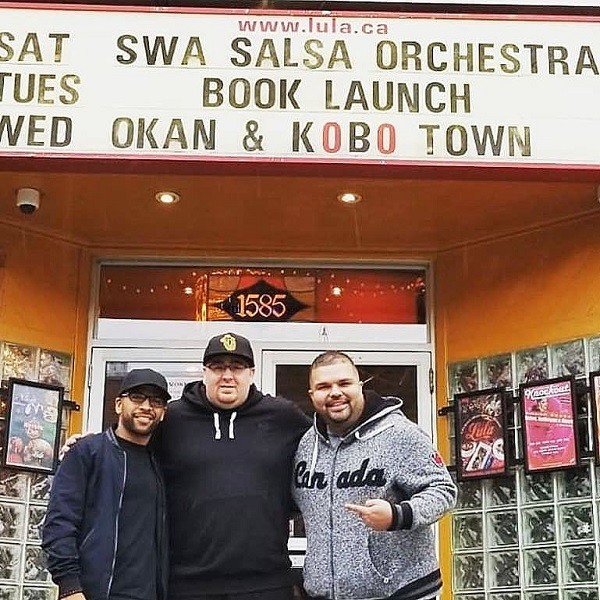
Original music and covers
Most of the time, the music and arrangements come from Alex’s ingenuity, but there is no lack of good ideas and contributions from Jairo and Andrés in order to beautify and improve the work already done. However, there are times when the last two can have a specific idea with which Alex, in his words, ”plants the seed” to grow a beautiful oak tree.
The Panamanian artist highlighted Andres’ role with regard to covers and they two make the necessary arrangements so that their versions are not remotely similar to the original songs.
He also revealed that one of the soon-to-be-released songs was written by the singer of Salseros With Attitude, Venezuelan Albany Caldera. The lyrics are hers and it was Alex who created the musical arrangement.
Event planning and music classes
The planning of events has not been a simple matter, since the members of Salseros With Attitude know that they are in a very competitive environment with many groups and few festivals and places to play. That is why they are always in search of opportunities outside those spaces such as corporate events, weddings and other shows not included in the world of entertainment. That has led them to opt for the production of events focused on these more private activities.
As regards the teaching of music, they have been blessed with the possibility of going to schools to perform for children in a dynamic and interactive way. They also get used to covering children’s songs in salsa and cha cha chá so that the little ones feel connected and identified with what they hear and, therefore, learn in a simpler and more friendly way.
Conclusions
After having listened carefully to each of the interventions, it is evident that these young musicians have a very powerful brotherhood and are in sync with one another.
It is really admirable that they know and feel how special they are compared to other groups of this kind and that trust has led them to the success and popularity they have achieved over the years.
From International Salsa Magazine, we wish them the best and hope that Salseros With Attitude keeps growing to infinity in all possible areas and takes Latin culture to the top.
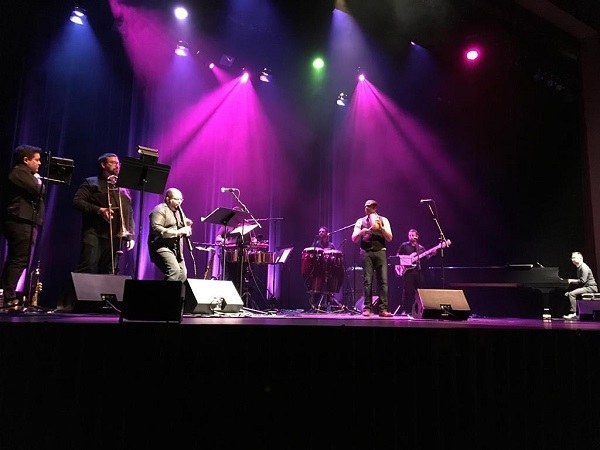
Read also: Founder and owner of Guapacha Productions Gil Tower
